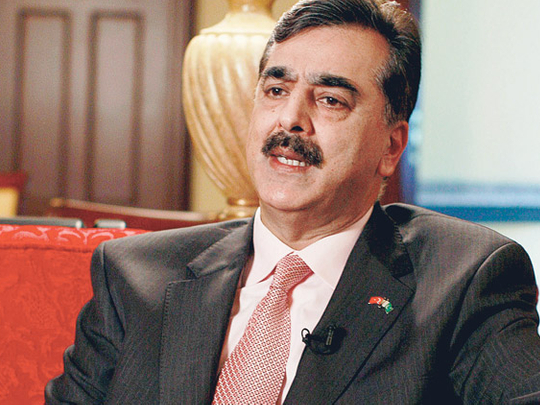
Islamabad: Pakistan's prime minister said yesterday that peace talks between the Afghan government and the Taliban cannot succeed without Islamabad's help, a reminder of the leverage the country has because of its historical ties with the group.
The drumbeat about talks has picked up in recent days, fuelled in part by Afghan President Hamid Karzai's confirmation that his government has had informal discussions with the Taliban on securing peace in Afghanistan "for quite some time."
Pakistan has offered to facilitate peace talks previously, but Afghanistan is believed to be suspicious of its motives. Pakistan helped the Taliban seize power in Afghanistan in the 1990s and many of the group's senior commanders, including leader Mullah Omar, are believed to be based along Pakistan's rugged border with Afghanistan.
Suspicion
Many analysts suspect Pakistan would again like to see the Taliban in a position of power in Afghanistan to act as a counterweight to Islamabad's archenemy, India, in the country.
This suspicion has raised questions about how Pakistan would use its influence with the Taliban during any negotiations with the Afghan government.
Pakistani Prime Minister Yousuf Raza Gilani tried to dispel concerns about the country's role when asked about Taliban peace talks yesterday, but also reminded observers of the leverage Pakistan has in the process.
"Look, nothing can happen without us because we are part of the solution. We are not part of the problem," Gilani told reporters while visiting the northwest town of Charsadda.
Many people wonder just how far Pakistan would go to protect its interests.
The Pakistani government arrested the Taliban's No 2 leader, Mullah Abdul Ghani Baradar, in February in a joint raid with the CIA — a move that some analysts believe was driven by Pakistan's desire to guarantee itself a seat at the negotiating table. Baradar was considered a likely channel in any talks with the top Taliban leadership.
The momentum for talks has picked up since the arrest as support for a drawn-out military push in Afghanistan is waning in the US and with other NATO allies.
Sending thousands more US troops this summer to the country's south has yet to show significantly increased security in the Taliban heartland.
Nato's top commander in Afghanistan — Gen David Petraeus — said recently that the military coalition was aware of overtures made by Taliban insurgents at the highest levels to the Afghan government.
Karzai told CNN's Larry King Live in an interview broadcast on Monday that the Afghan government has held informal talks with the Taliban "countryman to countryman" over an extended period.












